 It’s so fun that I get to chat with you about your book Pandemic. Thank you so much Yvonne for taking the time to be a part of BOD’s author spotlight interview. We’re so happy to have you!
It’s so fun that I get to chat with you about your book Pandemic. Thank you so much Yvonne for taking the time to be a part of BOD’s author spotlight interview. We’re so happy to have you!
Thank you! BOD is an amazing group, so I’m thrilled to be interviewed here.
Before we get into Pandemic, tell us how you got into writing. Was it something you’ve always wanted to do, or have done? Or does it come from a love of reading?
I still have old poems from around sixth and seventh grade. I was always an avid reader, and wanting to work with words seemed like a natural extension of that. I took my first formal creative writing classes in college but didn’t write seriously until my children were born.
Will you please tell us about Pandemic, and what inspired you to write it?
Here’s a blurb about the story:
In Pandemic, only a few people know what caused Lilianna Snyder’s sudden change from a model student to a withdrawn pessimist who worries about all kinds of disasters. After her parents are called away on business, Lil’s town is hit by what soon becomes a widespread fatal illness. With her worst fears realized, Lil must find a way to survive not only the outbreak and its real-life consequences, but also her own personal demons.
In terms of what inspired me, I’ve always been fascinated with disaster situations. For example, I loved Life As We Knew It by Susan Beth Pfeffer. When the Swine Flu pandemic occurred in 2009, it wasn’t particularly lethal, but it did make me wonder. What if a virus was extremely contagious and caused a high death rate? And what if a teen girl had to survive the illness on her own?
Pandemic is more about the experience during the disaster than the aftermath. I found it interesting to think about not only the practical implications of a contagious disease, like potential food shortages, but also about how fear would change social interactions. Dire circumstances can bring out the best and the worst in people and I wanted to explore that in this story.
I thoroughly enjoyed reading Pandemic. I love how informative it was from beginning to end. Does the knowledge you write about come from personal experience of what to do in an emergency, or from research?
I’m happy you liked it.
I did a lot of research, starting with the Spanish Influenza of 1918, then reading about current emerging infectious diseases as well. (I recommend Spillover by David Quammen and Emerging Epidemics by Madeline Drexler.)
The story is set in New Jersey and I was able to find planning documents online, as well as interview a local health officer. He spoke frankly about the H1N1 experience and gave me insight into what problems could potentially occur if a more deadly pandemic struck.
By the way, I thought because of my research that I was well prepared for an emergency. In the midst of writing the novel, we were hit by a severe October ice storm and lost power for about ten days. I quickly found the flaws in my efforts. And there were many! (For example, we didn’t have an easy way to recharge our multiple cell phones.)
I include information about pandemics and preparedness on the Resources section of my website.
I find it ironically scary to have read this book the same week a patient with Ebola was admitted to a hospital in America. How do you feel about this?
Ebola is frightening. The disease obviously differs from bird flu—it has a longer incubation time, for example, and it’s not airborne. But it seems incredibly difficult to protect the medical staff needed to treat it. The spread of the disease is very worrisome.
The sexual assault sub-plot was so well handled in Pandemic. Why did you put this sub-plot in a story about a viral epidemic?
I wanted to create a story where the main character is in a difficult place at the onset, even before the disease strikes, so that she must find a way to heal and become stronger during the crisis. The sexual assault was an integral part of Lil’s character for me.
I was also interested in the moral dilemma of whether or not we would help others if it puts us at risk. Since Lil’s philanthropy leads to harm prior to the outbreak (it’s after a food drive that she’s assaulted), she struggles to become altruistic again.
Now tell us some fun facts about yourself. Do you have a favorite treat you like to eat when you’re writing or reading?
I love hot drinks while I’m writing— coffee, tea, hot chocolate—even during the summer. And I’m a big fan of Hershey kisses as a reward for a creative, productive session. I also like Skinny Pop popcorn but it messes up the keyboard if I eat it while I’m typing, so I have to save that as an editing treat.
Do you have a writing ritual or routine you do to get you in the writer’s zone?
It’s not exactly a routine, but in August and September, I participated in WritingChallenge.org. (I’m taking October off from the group to focus more on Pandemic publicity.) The idea is to write 500 words or edit for one hour each day for the month, tweeting and tracking your daily progress. It’s a great way to feel accountable for getting the work done, and like BOD, the group is friendly and supportive.
If you could do one thing differently about your writing career, what would it be?
Earlier in my career, I tended to rush the fiction writing process and I often felt “done” when more revisions were needed. Writing a novel takes a long time for me, and I wish I had realized sooner that leaving a manuscript alone for days (even weeks) between revisions is a good and necessary step.
Thanks for sharing your time with all of us at BOD, and for creating awesome stories to get lost in!
You’re welcome. As a special offer to BOD members in the US, if anyone wants a bookmark for Pandemic, email me the address.
Keep reading to learn more about Pandemic and Yvonne!
PANDEMIC
An excerpt from the opening pages of Pandemic.
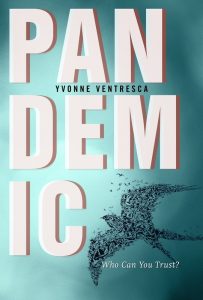 I stood on the smoking corner behind school reveling in my aloneness. Not many smokers had the same schedule, which made the corner the perfect place for solitude. We always stayed a foot off the high school property, near the big oak tree, and since we were allowed to leave during last period study hall, we weren’t technically breaking any rules.
I stood on the smoking corner behind school reveling in my aloneness. Not many smokers had the same schedule, which made the corner the perfect place for solitude. We always stayed a foot off the high school property, near the big oak tree, and since we were allowed to leave during last period study hall, we weren’t technically breaking any rules.
As if rules mattered.
“Hey, got a light?” Jay Martinez asked, interrupting the quiet. In the fall, he’d moved from Arizona to live with his aunt down the block from my house.
I handed him my half-smoked cigarette. Cupping the burning ember, he used it to light his own. He didn’t fit in with the other smokers, but then neither did I. My black clothes, basic ponytail, and minimal makeup placed me in my own category. Maybe Lazy Goth. But the nice thing about smokers was that they didn’t exclude anyone.
“Thanks.” Jay passed my cigarette back to me.
“Is New Jersey always this cold in April?”
Being the new guy at school made Jay the flavor of the month with the other sophomore girls. They craved him in a nauseating kind of way. He was dark, tall, and lanky, and tended to over-communicate. Totally not my type. Now he ruined my aloneness with weather chatter. I shrugged so he’d get the idea that I wasn’t in a talking mood.
“Ethan was hoping to run into you,” he said.
Another shrug. I’d managed to avoid my ex for months. No reason to change the pattern now.
“So . . . do you have Robertson for bio?” he asked.
I nodded. Jay definitely wasn’t taking the hint.
“What are you doing your report on?”
“Emerging diseases,” I said, finally giving up on staying silent.
“Cheerful stuff.”
The school projects I chose did favor the dark this semester. American history report? The decision to drop the bomb. English book talk? A collection of Edgar Allan Poe’s stories. Thematically, Ebola hemorrhagic fever fit right in.
“What are you writing about?” I flicked the accumulated ashes. “Lung cancer?”
He smiled. “The biology of taste. I write restaurant reviews on my blog and that was the closest topic I could think of. Do you like eating at restaurants?”
Leaning slightly forward, he held eye contact a little too long for me. Was he flirting? Nervous, I pulled my sweater tighter around me and crossed my arms. A flirtatious guy was the absolute last thing I needed in my life. No boyfriends, no coy conversations for me. Not anymore.
Buy Pandemic: Indiebound | Amazon | Barnes & Noble
Powells | Books-a-million | Book Depository | Chapters
ABOUT YVONNE
Website | Goodreads | Facebook | Twitter | Pinterest
Before becoming a children’s writer, Yvonne Ventresca wrote computer programs and taught others how to use technology. Now she happily spends her days writing stories instead of code. Yvonne’s the author of the young adult novel Pandemic, available since May from Sky Pony Press. Yvonne’s other writing credits include two nonfiction books for kids: Avril Lavigne (a biography of the singer) and Publishing (about careers in the field). You can visit her website at www.YvonneVentresca.com.
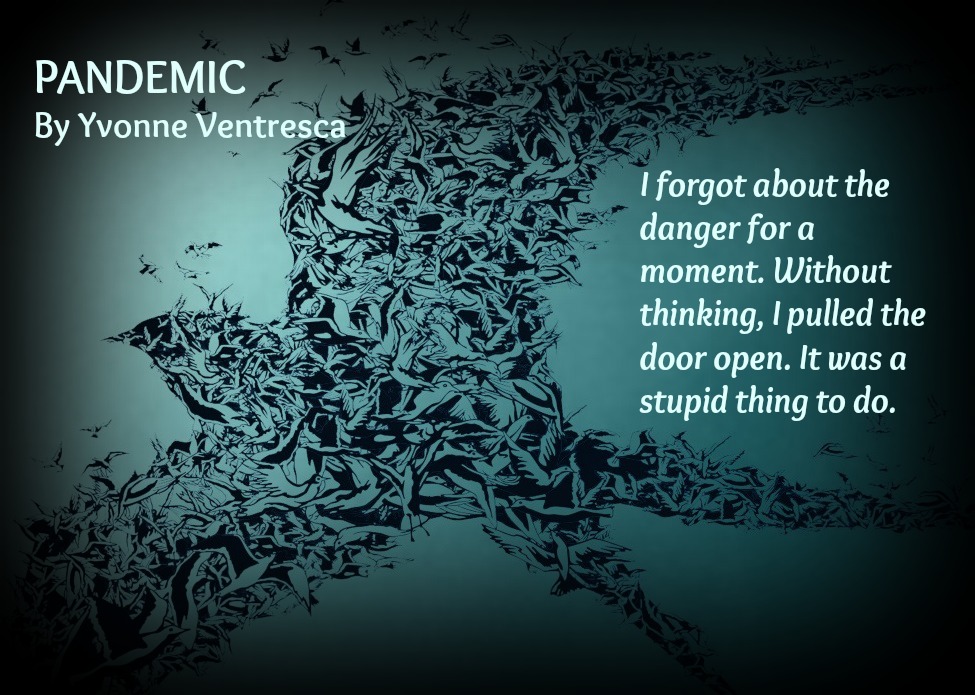



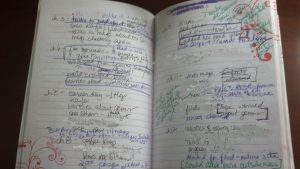
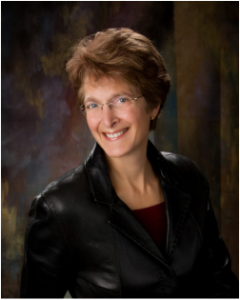 Thank you so much, Ilsa, for taking part in our BOD author spotlight interview. I know all our BOD members are so excited to hear from you!
Thank you so much, Ilsa, for taking part in our BOD author spotlight interview. I know all our BOD members are so excited to hear from you!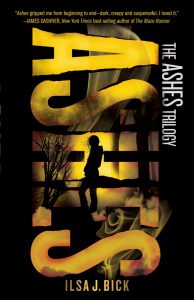 It’s so interesting you ask that. I was just thinking about my past lives: Air Force major, child psychiatrist, forensic psychiatrist, film scholar, surgery intern, wannabe actress. You know, past lives aren’t like bad cases of the flu. You don’t get over them, you only move on and, in another context, I once wrote that you can’t know where you’re going until you know where you’ve been. We are our memories and experiences and dreams, pure and simple.
It’s so interesting you ask that. I was just thinking about my past lives: Air Force major, child psychiatrist, forensic psychiatrist, film scholar, surgery intern, wannabe actress. You know, past lives aren’t like bad cases of the flu. You don’t get over them, you only move on and, in another context, I once wrote that you can’t know where you’re going until you know where you’ve been. We are our memories and experiences and dreams, pure and simple.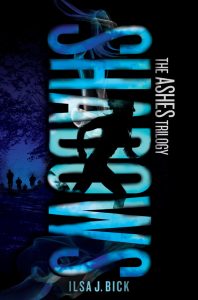 So now we’re talking about a world where things are going from bad to worse, and people struggle to stay alive. By the way, all that survivalism is real, too. Making debris shelters, purifying water, making fires—all that and much more—are things I’ve done and techniques that will keep you alive if the worst happens. Mind you, I didn’t say comfortable; we’re not talking toasty slippers before a hearth, but you can make it if you know basic survival tricks. Ditto the medical stuff, too, and the surgical procedures. Been there, done that, bought the tee-shirt.
So now we’re talking about a world where things are going from bad to worse, and people struggle to stay alive. By the way, all that survivalism is real, too. Making debris shelters, purifying water, making fires—all that and much more—are things I’ve done and techniques that will keep you alive if the worst happens. Mind you, I didn’t say comfortable; we’re not talking toasty slippers before a hearth, but you can make it if you know basic survival tricks. Ditto the medical stuff, too, and the surgical procedures. Been there, done that, bought the tee-shirt.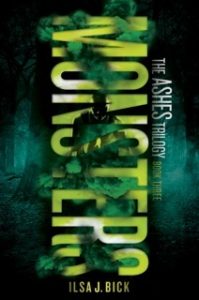 Teachers always ask me about the violence quotient in the trilogy: like, I should be bothered because I make the violence so realistic and in your face. My response is this. Nothing I do is any worse than any video game or movie. More to the point, I try very hard to dwell on what happens to the person who pulls the trigger. A lot of books don’t. Video games never do. But I remember the first time I shot a .45. I remember how I felt; how I nearly peed my pants; how I was shaking—because firing a gun and understanding that you now have the power to take a life is a visceral, humbling experience. It shouldn’t be glorified, and the idea of blowing someone away is most certainly not fun. So I want my readers to get that, too. The person who pulls that trigger pays a price.
Teachers always ask me about the violence quotient in the trilogy: like, I should be bothered because I make the violence so realistic and in your face. My response is this. Nothing I do is any worse than any video game or movie. More to the point, I try very hard to dwell on what happens to the person who pulls the trigger. A lot of books don’t. Video games never do. But I remember the first time I shot a .45. I remember how I felt; how I nearly peed my pants; how I was shaking—because firing a gun and understanding that you now have the power to take a life is a visceral, humbling experience. It shouldn’t be glorified, and the idea of blowing someone away is most certainly not fun. So I want my readers to get that, too. The person who pulls that trigger pays a price.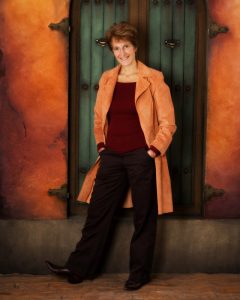 Ilsa J. Bick is a child and forensic psychiatrist, as well as a film scholar, surgeon wannabe, former Air Force major, and an award-winning, best-selling author of dozens of short stories and novels. Her YA credits include the critically acclaimed paranormal mystery, DRAW THE DARK (winner of the Westchester Fiction Award, a VOYA Perfect Ten, and Bank Street College 2011 Best Book); the bittersweet DROWNING INSTINCT, a story about a sixteen-year-old girl’s relationship with her chemistry teacher; and THE SIN-EATER’S CONFESSION, a mystery revolving around the murder of a young boy, who may or may not have been homosexual, that was also a 2014 YALSA BYFA and just honored with the 2014 Independent Publisher Gold Medal for Excellence in Young Adult Fiction.
Ilsa J. Bick is a child and forensic psychiatrist, as well as a film scholar, surgeon wannabe, former Air Force major, and an award-winning, best-selling author of dozens of short stories and novels. Her YA credits include the critically acclaimed paranormal mystery, DRAW THE DARK (winner of the Westchester Fiction Award, a VOYA Perfect Ten, and Bank Street College 2011 Best Book); the bittersweet DROWNING INSTINCT, a story about a sixteen-year-old girl’s relationship with her chemistry teacher; and THE SIN-EATER’S CONFESSION, a mystery revolving around the murder of a young boy, who may or may not have been homosexual, that was also a 2014 YALSA BYFA and just honored with the 2014 Independent Publisher Gold Medal for Excellence in Young Adult Fiction.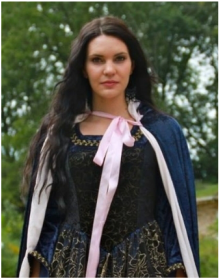 Do you remember your first introduction to zombies? When did you first get hooked?
Do you remember your first introduction to zombies? When did you first get hooked? 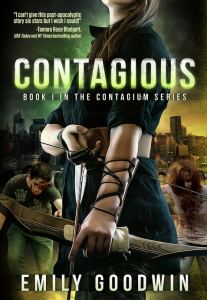 I tried to make my zombie virus as realistic as possible. I was in nursing school at the time of writing this series, so I had many doctors and nurses around to ask for advice. I also spoke with a neurologist about brain function. In my series, the virus attacks the parts of the brain that control memory and emotion—basically what makes us human. As the virus progresses, it kills off more of the brain, giving the infected that typical zombie stagger. The body starts to slowly die off, and blood flow decreases. The extremities are the first to go, and the skin becomes necrotic, which allows the infected to look like zombies. You find out more about the virus in the final book, and I don’t want to give away spoilers! The virus does progress in three distinct stages: getting infected and going insane, zombie, then really zombied-zombies that are literally falling apart. The characters refer to them as crazies, zombies, and gummies…since the skin and organs get gummy and gooey so close to the end.
I tried to make my zombie virus as realistic as possible. I was in nursing school at the time of writing this series, so I had many doctors and nurses around to ask for advice. I also spoke with a neurologist about brain function. In my series, the virus attacks the parts of the brain that control memory and emotion—basically what makes us human. As the virus progresses, it kills off more of the brain, giving the infected that typical zombie stagger. The body starts to slowly die off, and blood flow decreases. The extremities are the first to go, and the skin becomes necrotic, which allows the infected to look like zombies. You find out more about the virus in the final book, and I don’t want to give away spoilers! The virus does progress in three distinct stages: getting infected and going insane, zombie, then really zombied-zombies that are literally falling apart. The characters refer to them as crazies, zombies, and gummies…since the skin and organs get gummy and gooey so close to the end.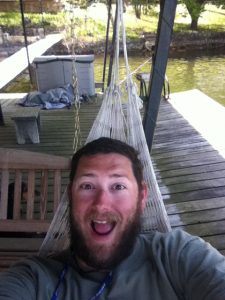 I was just napping on the couch, I have plenty of time. By the way, who let you in my house? Was it the cat? That dude can’t be trusted. He didn’t try to put anything in your pockets, did he? Maybe ask you to deliver a message to someone? Don’t do it! Don’t be a mule for the cat!
I was just napping on the couch, I have plenty of time. By the way, who let you in my house? Was it the cat? That dude can’t be trusted. He didn’t try to put anything in your pockets, did he? Maybe ask you to deliver a message to someone? Don’t do it! Don’t be a mule for the cat!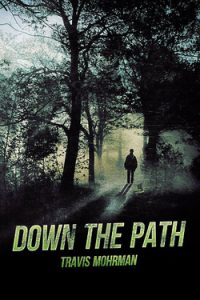 I love the Dystopian and Post-Apoc genres, but my biggest complaint is that I don’t think the people are very realistic. It seems that in many books, the fear of law is all that keeps society from plummeting into madness. To be fair, I think in any kind of apocalyptic scenario there would be massive chaos and lots of fighting, looting, etc…but that would all end pretty quickly.
I love the Dystopian and Post-Apoc genres, but my biggest complaint is that I don’t think the people are very realistic. It seems that in many books, the fear of law is all that keeps society from plummeting into madness. To be fair, I think in any kind of apocalyptic scenario there would be massive chaos and lots of fighting, looting, etc…but that would all end pretty quickly.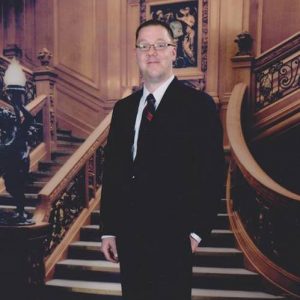 Hey all you fantastic BOD members, thanks for reading! Check out this week’s author spotlight. I’m very excited to introduce and interview A.J. Leavens. Welcome!
Hey all you fantastic BOD members, thanks for reading! Check out this week’s author spotlight. I’m very excited to introduce and interview A.J. Leavens. Welcome!
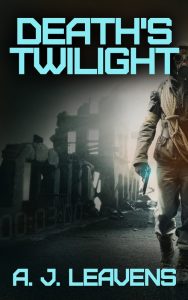 A little of both. I took Karate and Aikido as a youth, and those lessons have always stayed with me. Hotaru’s washroom fight scene was written based on some of the teachings I received. Her training session when she is praised by Lao Shi was the result of weeks of studying Tai Chi and gymnastics.
A little of both. I took Karate and Aikido as a youth, and those lessons have always stayed with me. Hotaru’s washroom fight scene was written based on some of the teachings I received. Her training session when she is praised by Lao Shi was the result of weeks of studying Tai Chi and gymnastics.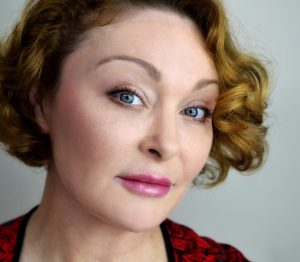 It is such a pleasure to interview you and help the BOD members to get to know you better. Thank you for letting me spotlight you!
It is such a pleasure to interview you and help the BOD members to get to know you better. Thank you for letting me spotlight you!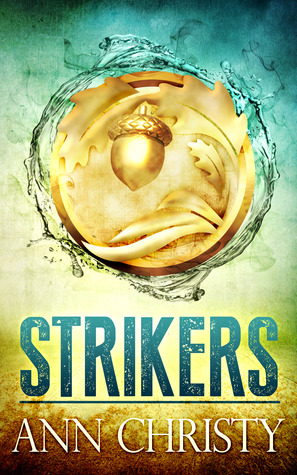 Strikers is absolutely from my heart. That is the name given to those who escape Texas. Most do to avoid getting their fifth and final strike, because that brings the death penalty. How it came about it from reading real life news.
Strikers is absolutely from my heart. That is the name given to those who escape Texas. Most do to avoid getting their fifth and final strike, because that brings the death penalty. How it came about it from reading real life news.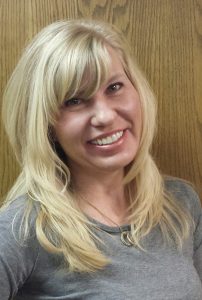 One of the great things about being a member of BOD is that authors and fans get to interact and share together in their love for all things dystopian.
One of the great things about being a member of BOD is that authors and fans get to interact and share together in their love for all things dystopian. 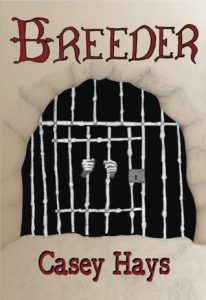 Breeder, is the first novel in the Arrow’s Flight Series, and my favorite of all my books so far. It’s the story of Kate, a sixteen year old girl living in a primitive village after the Fall destroyed the Earth and left her village the only one standing. She is assigned to become a breeder early in the novel, and her story unfolds from there. She’s a rebel, and she finds herself in a world of trouble when she refuses to follow the rules. It was a fun journey.
Breeder, is the first novel in the Arrow’s Flight Series, and my favorite of all my books so far. It’s the story of Kate, a sixteen year old girl living in a primitive village after the Fall destroyed the Earth and left her village the only one standing. She is assigned to become a breeder early in the novel, and her story unfolds from there. She’s a rebel, and she finds herself in a world of trouble when she refuses to follow the rules. It was a fun journey.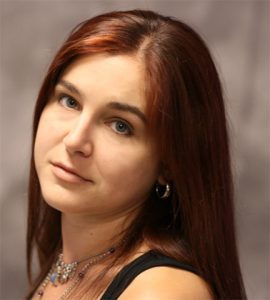 Hi Katie, thank you so much for taking the time to do this interview for all your fans, myself included. It has been truly wonderful to be able to interact with you on the Band of Dystopian Authors and Fans group page.
Hi Katie, thank you so much for taking the time to do this interview for all your fans, myself included. It has been truly wonderful to be able to interact with you on the Band of Dystopian Authors and Fans group page. 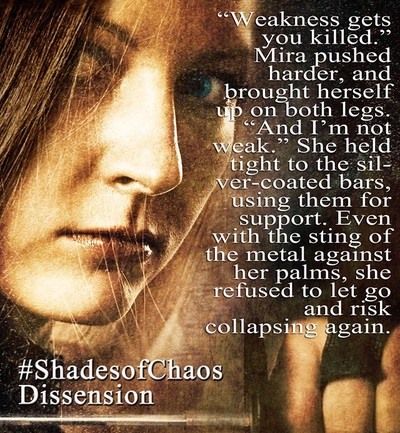
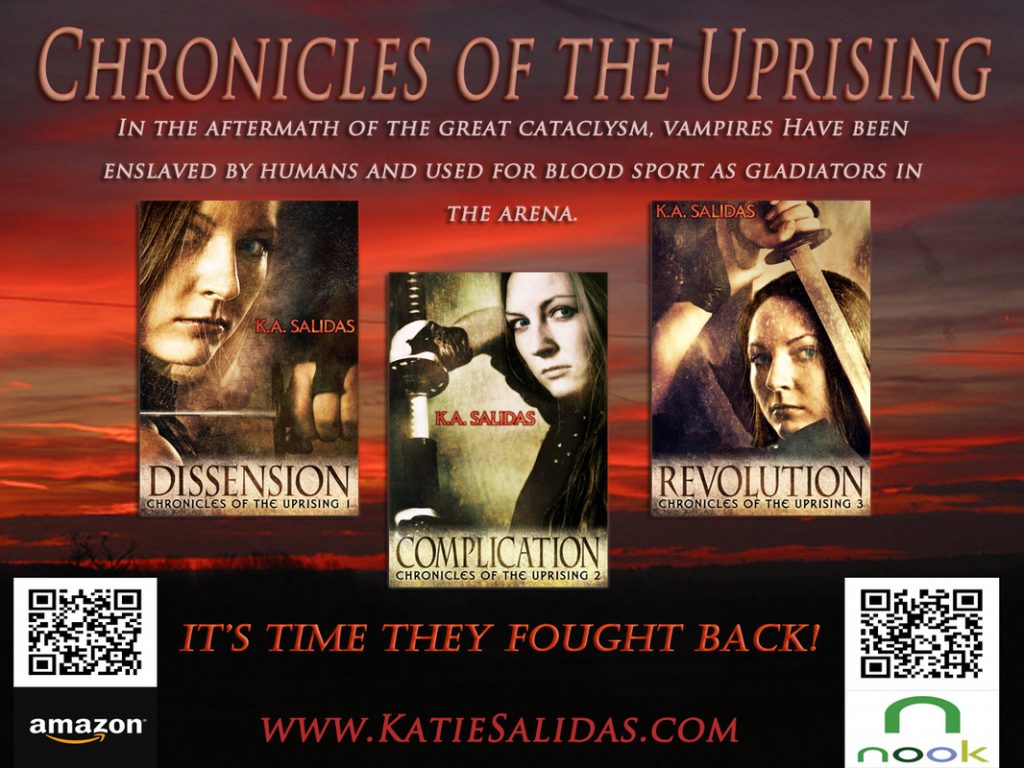
 The stunning cover for Mirror X immediately caught my attention, but after reading the synopsis it promised even more. I knew from page one that this was my kind of book and at that moment interviewing Karri Thompson became priority one. I was thrilled when she agreed to answer my questions for this interview as I found Mirror X to be an original dystopia with a minefield of controversial subjects.
The stunning cover for Mirror X immediately caught my attention, but after reading the synopsis it promised even more. I knew from page one that this was my kind of book and at that moment interviewing Karri Thompson became priority one. I was thrilled when she agreed to answer my questions for this interview as I found Mirror X to be an original dystopia with a minefield of controversial subjects. 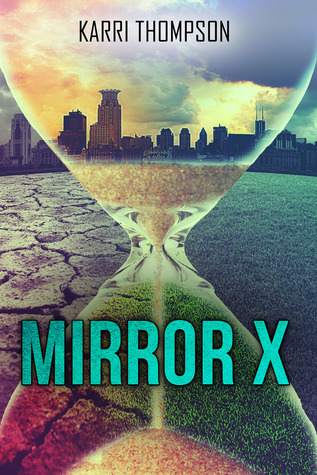 Cassie Dannacher wakes up in a hospital over 1,000 years into the future after her space capsule is retrieved from space. She soon learns that 600 years prior to her arrival, the earth was struck by a plague, killing over half of the world’s population. Naïve and desperate, Cassie, who longs for home and is having trouble adjusting to the new, dictatorial 31st-century government, is comforted by Michael Bennett, the 20-year old lead geneticist at the hospital where she was revived.
Cassie Dannacher wakes up in a hospital over 1,000 years into the future after her space capsule is retrieved from space. She soon learns that 600 years prior to her arrival, the earth was struck by a plague, killing over half of the world’s population. Naïve and desperate, Cassie, who longs for home and is having trouble adjusting to the new, dictatorial 31st-century government, is comforted by Michael Bennett, the 20-year old lead geneticist at the hospital where she was revived. “A highly original and thought-provoking dystopian novel.
“A highly original and thought-provoking dystopian novel.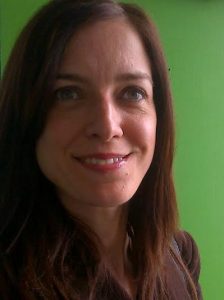 Shanta Everington is the author of seven books, including three young adult novels – Give Me a Sign, Boy Red and latest release XY (joint winner of the Red Telephone Books YA Novel Competition). She has had all sorts of jobs in the past, from baking vegan muffins and working as a private tutor to appearing as a guest agony aunt and running a teen sexual health helpline. With an MA in Creative Writing with distinction, Shanta currently teaches Creative Writing with The Open University. She lives in London, UK, with her husband and two children.
Shanta Everington is the author of seven books, including three young adult novels – Give Me a Sign, Boy Red and latest release XY (joint winner of the Red Telephone Books YA Novel Competition). She has had all sorts of jobs in the past, from baking vegan muffins and working as a private tutor to appearing as a guest agony aunt and running a teen sexual health helpline. With an MA in Creative Writing with distinction, Shanta currently teaches Creative Writing with The Open University. She lives in London, UK, with her husband and two children.
Recent Comments